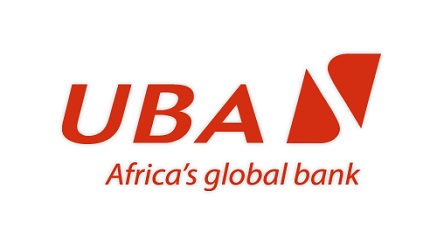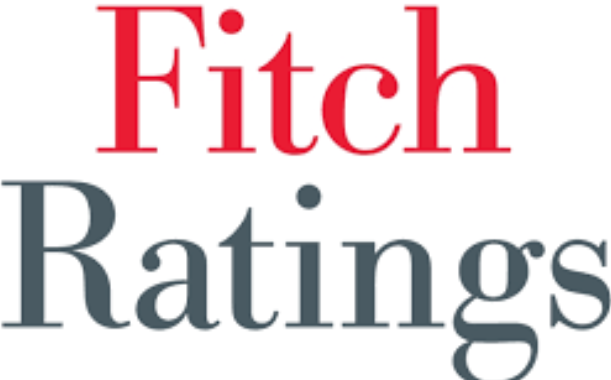E-Financial
UBA Delivers Stellar Performance in Half-Year 2017, Grows Profit by 66%

United Bank for Africa (UBA) Plc, Pan African financial institution, has announced its audited half year financial results ended June 30, 2017, showing remarkable performance across major metrics.
UBA grew its gross earnings for the period by 34.5 percent to N222.7 billion, as against N165.6 billion reported in June 2016.
This impressive performance, which reflects the strong momentum of UBA’s business and its increasing share of customers’ wallet, was driven by the 44.3 per cent and 16.0 per cent growth in interest income and non-funded income respectively.
The Group’s operating income stood at N161.8 billion, compared to N116.2 billion recorded in the corresponding period of 2016, representing a 39.2 percent growth.
Notwithstanding the impact of Naira devaluation and double digit inflation in Nigeria and a number of other African countries where UBA operates, the Group managed through its cost lines to deliver a sterling Profit Before tax (PBT) of N57.5 billion, representing a significant growth of 65.5 percent over N34.8 billion recorded in the corresponding period of June 2016.
In same vein, the Group recorded an unprecedented Profit After Tax (PAT) of N42.3 billion, translating to a 56.2 percent growth over the N27.1 billion recorded in the half-year of 2016. This profitability further reflects the earnings capacity of the Group and its capability to progressively deliver superior returns to shareholders.
While the Group closed the half year with Total Assets of N3.69 trillion, a growth of 5.3 percent, it prudently grew gross loans to N1.6 trillion, a 4 percent growth when compared to the Group loan book as at 31 December 2016.
Reflecting a strong capacity for internal capital generation, the Group’s Shareholders’ Fund grew by 8 percent to N483.1 billion, whilst it delivered an annualized 18.2% return on average equity (RoAE) and an Interim Dividend of N0.20 per Share.
Commenting on the result, Kennedy Uzoka, the Group Managing Director/CEO, said that “the results again demonstrate the strong momentum of the Bank, as we deliver continuous improvement across our businesses and key performance metrics.”
He further stated that the Bank’s “unwavering focus on customer service excellence is translating to strong operational and financial efficiency gains. We have achieved better pricing on assets and liabilities, leading to continued improvement in the net interest margin to 7.3%. Leveraging our service-focused strategy and treasury management, we grew non-interest income by 17% year-on-year, reinforcing our transaction-banking-led approach towards deepening financial inclusion in Sub-Saharan Africa.”
According to him, UBA has made considerable progress in its retail banking penetration, gaining market share in deposits, at a time when a sizeable percentage of households are challenged due to inflationary pressures on disposable income. The Bank grew its retail savings and current account deposits by 23% and 5% YTD respectively.
Also speaking on UBA’s financial performance and position, the Group CFO, Ugo Nwaghodoh said that the Bank had “a strong start in the year, despite protracted recession in Nigeria, our largest market. Our profit after tax of N42 billion translates to 18.2% return on average equity, broadly in line with our 2017FY guidance.”
He further said that the Bank’s African subsidiaries (ex-Nigeria) contributed 32% of the Group’s earnings, leveraging on digital offerings to gain market share across the different markets. “We maintain our discipline of banking only quality and profitable assets, a conservative stance which reflects on our asset quality. Notwithstanding consistent liquidity mop-up by the CBN, we maintained an average balance sheet liquidity ratio of 42%. Further reinforcing the Bank’s capacity is the strong BASEL II capital adequacy ratio of 20%, which underpins our ability to grow, as the macro risks decline, he said”
United Bank for Africa Plc is a leading pan-African financial services group, with presence in 19 African countries, as well as the United Kingdom, the United States of America and France.
UBA was incorporated in Nigeria as a limited liability company after taking over the assets of the British and French Bank Limited who had been operating in Nigeria since 1949. The United Bank for Africa merged with Standard Trust Bank in 2005 and from a single country operation founded in 1949 in Nigeria – Africa’s largest economy – UBA has become one of the leading providers of banking and other financial services on the African continent. The Bank provides services to over14 million customers globally, through one of the most diverse service channels in sub-Saharan Africa, with over 1,000 branches and customer touch points and robust online and mobile banking platforms.
UBA was the first Nigerian bank to make an Initial Public Offering, following its listing on the NSE in1970. It was also the first Nigerian bank to issue Global Depository Receipts. The shares of UBA are publicly traded on the Nigerian Stock Exchange and the Bank has a well-diversified shareholder base, which includes foreign and local institutional investors, as well as individual shareholders.
E-Financial
Fitch Downgrades Afreximbank to ‘BB+’/Stable Amid Concerns Over Ghana’s Debt

Fitch Ratings has downgraded African Export-Import Bank’s (Afreximbank) Long-Term Issuer Default Rating (IDR) to ‘BB+’ from ‘BBB-’.

Fitch also downgraded Afreximbank’s Short-Term IDR to ‘B’, from ‘F3’, and the long-term ratings on the bank’s global medium-term note programme and debt issuance to ‘BB+’, from ‘BBB-’.
The global rating institution subsequently withdrew the bank’s ratings.
In a statement posted on its website, Fitch explained that the downgrade “reflects our revision of Afreximbank’s policy importance risk to ‘medium’ from ‘low’ following the announcement of an agreement on Ghana’s debt to Afreximbank in the context of Ghana’s broader restructuring”.
It said, “This has led us to revise our assessment of Afreximbank’s business profile to ‘high risk’ from ‘medium risk’, which resulted in an overall business environment notching of -3 (-2 previously).”
Essentially, a BB+ /Stable rating from Fitch is considered non-investment grade, also known as high-yield or “junk”.
The statement added, “Fitch has chosen to withdraw the ratings for commercial reasons. Fitch will no longer provide ratings or analytical coverage for the bank.”
In arriving at its decision, Fitch stated, “Afreximbank and Ghana announced in December 2025 that they had reached an agreement in principle with respect to Afreximbank’s $750 million sovereign loan to Ghana.
“The IMF stated that the deal is in line with the comparability of treatment under Ghana’s official creditor committee. We view this as evidence that Afreximbank did not benefit from its preferred creditor status (PCS).”
It said, “While we had not previously given any uplift in our solvency assessment for PCS, the de-facto preferential treatment in a broader sense that Afreximbank, along with most other multilateral development banks, benefit from was previously factored into our assessment of the bank’s policy importance.
“The bank’s inclusion in Ghana’s restructuring underlines its weakening policy importance, in our view.”
The rating institution also said, “Our latest assessment of Afreximbank’s ‘high’ business profile risk underpins the ‘high risk’ quality of governance assessment, and ‘high’ strategy risk.
“The ‘high risk’ business environment assessment reflects the bank’s exposure to a ‘high risk’ operating environment with weak credit quality, low income per capita and high political risk in the countries of operation.”
It explained that the ratings were driven by the bank’s Standalone Credit Profile (SCP) of ‘bb+’, reflecting the lower of the solvency (bbb+) and liquidity (a) assessments and its ‘high risk’ business environment.
The statement added that the solvency assessment balanced the bank’s ‘strong’ capitalisation and ‘moderate’ risk profile.
Fitch stated, “Afreximbank’s ‘bbb+’ solvency assessment reflects both ‘strong’ capitalisation and ‘moderate’ solvency risks. Our assessment of capitalisation is underpinned by a ‘moderate’ usable capital to risk-weighted assets (21 per cent at end-2024) ratio, a ‘strong’ equity to assets and guarantees ratio (19 per cent) and ‘excellent’ internal capital generation.
“The ‘moderate’ solvency risks assessment reflects ‘high’ credit risk, ‘weak’ risk management policies, ‘low’ concentration risk and ‘very low’ equity risk.
“Afreximbank’s ‘a’ liquidity assessment reflects the ‘strong’ quality of treasury assets, measured by the share of treasury assets rated ‘AA-’ to ‘AAA’ (50 per cent at end-2024 and we expect it to remain above the ‘strong’ threshold of 40 per cent), and a ‘moderate’ liquidity buffer (defined as liquid assets-to-short-term debt, at 95 per cent at end-2024).
“The bank’s liquidity profile is enhanced by its access to capital markets and diversified funding sources, including credit lines ($2.1 billion, of which $0.6 billion was committed at end-2024) and collateral deposits. The short duration of the loan portfolio also contains liquidity needs.”
Fitch also stated that it “assesses shareholders’ capacity to support Afreximbank at ‘bb-’, based on the average rating of key shareholders (ARKS) accounting for more than 50 per cent of the bank’s capital.
“The sovereign upgrades of Egypt and Nigeria, Afreximbank’s two largest shareholders, in April 2025 improved the ARKS to ‘B+’ from ‘B’.
“Credit risk mitigants on callable capital (covering 40 per cent of $4.3 billion) enhance the support capacity by one notch to ‘bb-’.
“The support assessment also reflects the ‘strong’ propensity of shareholders to support the bank, which has been consistently demonstrated by ongoing capital injections and dividend reinvestments.”
E-Financial
FBNQuest Merchant Bank Rebrands as Quest Merchant Bank

FBNQuest Merchant Bank Limited has completed a change of name and will now operate as Quest Merchant Bank Limited, following the receipt of all required corporate and regulatory approvals.

The name change does not affect the Bank’s legal or going-concern status, management, or the nature of its business. Quest Merchant Bank Limited remains a duly licensed merchant bank, regulated by the Central Bank of Nigeria (CBN) and the Securities and Exchange Commission (SEC), and continues to deliver its full suite of merchant banking, advisory, and capital markets services to clients.
Commenting on the development, the Ag. Managing Director/CEO, Afolabi Olorode, stated: “This name change represents a pivotal milestone in the rich history of the Bank and a deliberate strategic repositioning that reflects our resilience, strong track record, and long-term growth ambitions. While our name has evolved, our commitment to our clients, stakeholders, and regulators remains unwavering.”
As part of the transition, the Bank is updating its branding, communications, and digital platforms to reflect the new name. During this period, some legacy references may remain visible across select touchpoints as updates are progressively completed.
All existing contracts, client relationships, and obligations of the Bank remain valid, binding, and fully enforceable following the name change.
E-Financial
UBA launches instant digital platform for seamless account opening across Africa, diaspora

United Bank for Africa (UBA) Plc, Africa’s leading financial institution, on Tuesday unveiled a groundbreaking instant account opening platform, revolutionising banking access for millions across the continent and diaspora communities worldwide.

UBA
The fully digital innovation, accessible at ubagroup.com, empowers prospective customers to complete account onboarding online in minutes, bypassing paperwork, branch visits, and lengthy processes that have long hindered financial inclusion. Supporting Naira and Diaspora accounts with multi-language options, the platform operates seamlessly on computers, tablets, and smartphones, catering to UBA’s diverse pan-African footprint spanning 20 countries, the UK, US, France, and UAE.
Shamsideen Fashola, Group Head of Retail and Digital Banking, described the launch as a pivotal step in democratising finance. “At UBA, we are committed to redefining the customer experience through innovation and simplicity,” Fashola said. “This fully digital solution underscores our belief that banking should be accessible, secure, and truly borderless.”
The seven-step process is intuitive: customers select “Open a Savings Account,” input their Bank Verification Number (BVN), undergo facial verification, confirm an OTP, update details, upload documents, add a digital signature, and receive an instant account number. This bridges traditional banking rigour with fintech speed, incorporating digital KYC while upholding stringent security.
Built with compliance at its core, the platform adheres to Nigeria’s Data Protection Act (NDPA) and Europe’s GDPR, safeguarding user privacy amid cross-border operations. Unlike conventional methods requiring physical biometrics, it enables immediate enrolment in UBA’s digital channels, blending convenience with regulatory depth.
Alero Ladipo, Group Head of Brand, Marketing, and Corporate Communications, highlighted customer-centric design. “Today’s customers expect speed, convenience, and compliance without compromise,” Ladipo stated. “We have blended industry-leading digital onboarding with robust standards for a seamless experience matching global best practices.”
The move reinforces UBA’s dominance in technology-driven inclusion, serving over 50 million customers with 30,000 employees and pioneering retail, commercial, and institutional services. Analysts view it as a strategic edge over fintech rivals, accelerating Africa’s digital economy amid rising diaspora remittances and intra-continental trade.
As Nigeria and Africa push financial digitisation, UBA’s platform positions the bank to capture untapped markets, fostering economic growth through barrier-free banking

 Telecom2 days ago
Telecom2 days agoPolice Bust ₦7.7bn Telecom Hack Gang, Seize 400 Laptops in Massive Fraud Swoop

 General News2 days ago
General News2 days agoNaira Smashes Through ₦1,400 Barrier in Official FX Rally

 General News2 days ago
General News2 days agoNCC Slaps ₦250,000 Fee on Trial Licences to Spur Telecom Innovation

 Broadcasting3 days ago
Broadcasting3 days agoNITDA, NBC Explore Strategic Collaboration on Digital Transformation, Media Regulation

 News2 days ago
News2 days agoFirms Commit to Boost African Robotics Market

 E-Financial2 days ago
E-Financial2 days agoUBA launches instant digital platform for seamless account opening across Africa, diaspora

 Telecom2 days ago
Telecom2 days agoAmazon Axes 16,000 Jobs Worldwide in Major Restructuring Push

 General News2 days ago
General News2 days agoKaspersky Reveals How Digitalisation is Influencing Family Life















